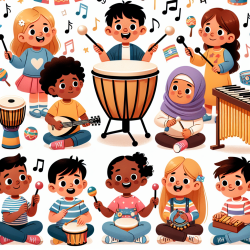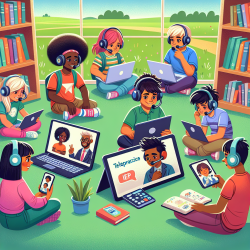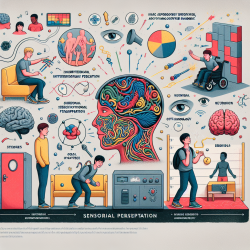In the realm of speech-language pathology, evidence-based interventions are crucial for achieving optimal outcomes, especially for children with Autism Spectrum Disorder (ASD) and Intellectual Disability (ID). A recent study titled "Music therapy as social skill intervention for children with comorbid ASD and ID: study protocol for a randomized controlled trial" provides valuable insights into how music therapy can be leveraged to improve social skills in this population. This blog aims to help practitioners implement the outcomes of this research or encourage them to delve deeper into the study.
Background
Autism Spectrum Disorder (ASD) is characterized by persistent deficits in social communication and interactions. More than half of children with ASD also have below-average intellectual abilities (IQ < 85). Traditional social skill interventions often fall short for these children, necessitating innovative approaches like music therapy.
The Study
The study involved a randomized controlled trial (RCT) with two parallel groups of 40 children each. Participants received either 45 minutes of music therapy or a non-musical intervention targeting social skills once a week for 12 weeks. Primary outcomes were measured using the Childhood Autism Rating Scale and the Social Responsiveness Scale-2.
Key Findings
- Music therapy showed promise in enhancing social interactions, initiating behavior, and social adaptation.
- Neural markers, such as quantitative electroencephalograms (qEEG), could predict the effectiveness of interventions, aiding in the development of individualized treatment plans.
Implementing Music Therapy
For practitioners interested in incorporating music therapy into their practice, consider the following steps:
- Start with familiar songs to build comfort and engagement.
- Use group activities like drumming to encourage turn-taking and social interaction.
- Incorporate parent or caregiver participation to extend social skills practice beyond therapy sessions.
Encouraging Further Research
While the study provides a solid foundation, further research is needed to understand long-term outcomes and refine intervention strategies. Practitioners are encouraged to contribute to this growing field by conducting their own studies and sharing their findings.
To read the original research paper, please follow this link: Music therapy as social skill intervention for children with comorbid ASD and ID: study protocol for a randomized controlled trial.










